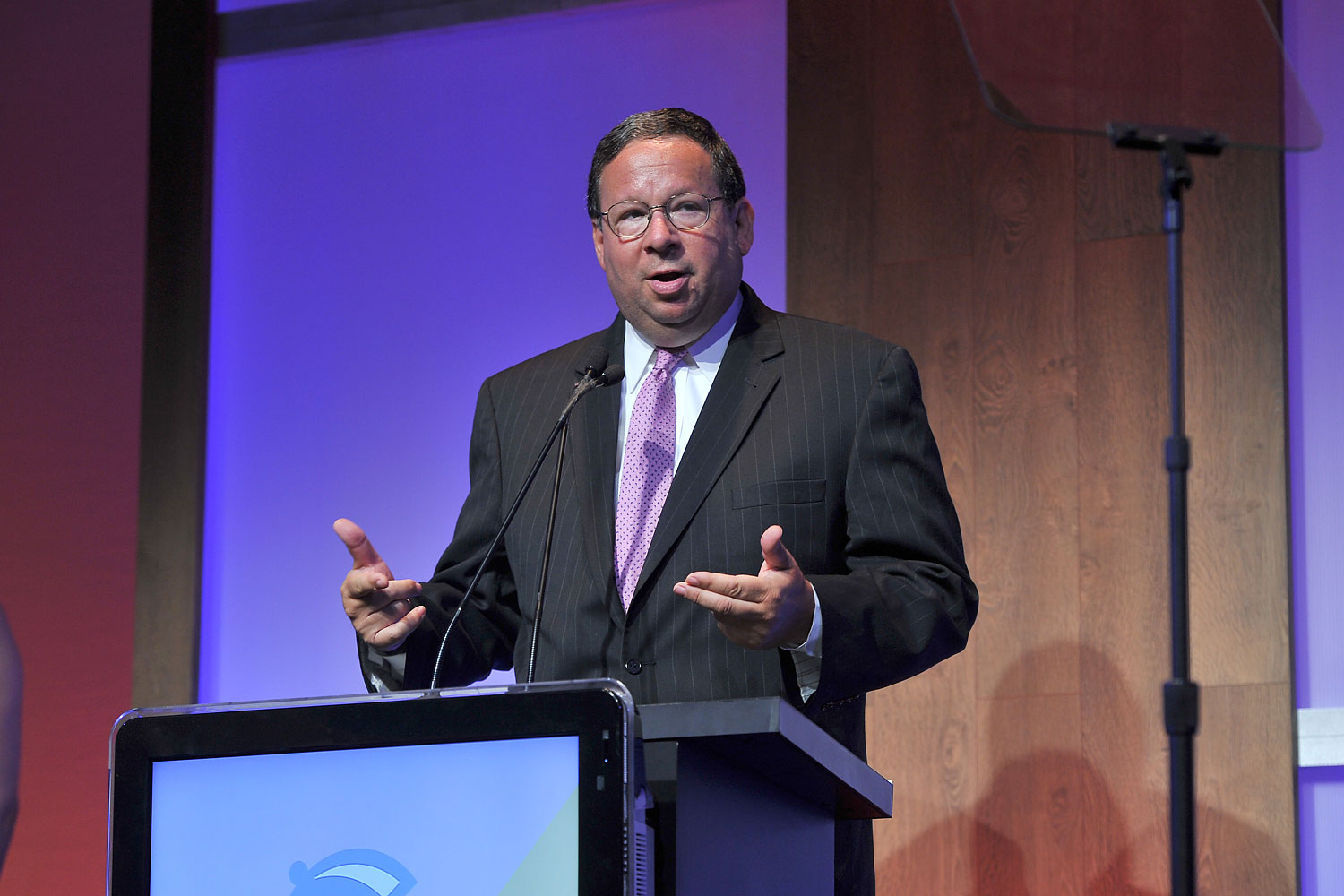
Comcast’s campaign to convince U.S. officials that its proposed $45 billion purchase of Time Warner Cable will benefit consumers kicked into high gear on Wednesday, when a senior executive from the corporate giant appeared before a key Congressional committee.
The proposed merger, which would combine the two largest cable companies in the U.S. and create an unprecedented entertainment and communications colossus, is fiercely opposed by many consumer advocacy groups.
Critics of the deal say the merger would concentrate too much market power in the hands of a single media giant, potentially harming competitors and offering scant benefits for consumers. On Tuesday, more than 50 public interest groups sent a letter to the Justice Department and the Federal Communications Commission in which they called the deal “unthinkable” and urged U.S. regulators to block it.
The intense debate about the proposed merger underscores the rapid changes sweeping across the media landscape as broadband Internet service becomes the signature communications medium of the 21st century. Tens of millions of Americans communicate, conduct business, and consume content using Internet-based technologies like email, instant messaging, video chat, social networks, voice-over-IP phone service, and streaming entertainment options like Netflix, Amazon and Spotify.
Federal approval of the deal would amount to a resounding triumph for Comcast CEO Brian Roberts, whose father founded the company in 1963 by buying a 1,200-subscriber cable TV company in Tupelo, Miss. for $500,000. Comcast, which now employs 136,000 people and has a market value of $130 billion, already owns NBCUniversal, one of the crown jewels of the entertainment industry, after buying the company from industrial conglomerate General Electric.
On Wednesday, Comcast executive vice president David L. Cohen testified before the Senate Judiciary Committee, and argued that the deal won’t harm competitors or consumers. On the contrary, Cohen said the deal is actually great for consumers, who will benefit from faster Internet speeds, enhanced broadband services, and improved user interface technology. Comcast has also pledged to extend its “net neutrality” commitment to Time Warner Cable customers, and expand a program that pushes broadband access in low income areas into Time Warner Cable markets.
(MORE: Comcast’s Time Warner Cable Deal is ‘Unthinkable,’ Critics Say)
Several lawmakers have expressed concern about the deal, including Sen. Al Franken (D—Mn.), a member of the Judiciary Committee. “I have serious reservations about this proposed transaction, which would consolidate the largest and second largest cable providers in America,” Franken wrote in a recent letter to regulators. “Unfortunately, a handful of cable providers dominate the market, leaving consumers with little choice but to pay high bills for often unsatisfactory service. I am concerned that Comcast’s proposed acquisition of Time Warner would only make things worse for consumers.”
On Tuesday, Comcast filed its 180-page Public Interest Statement with the FCC, which is charged with ensuring that the deal serves the public interest. “We expect a rigorous review as we’ve had in our previous deals, and believe an objective weighing of the significant public interest benefits that are offered by this transaction and the lack of competitive concerns should lead to approval,” Cohen wrote in a corporate blog post.
If the deal is approved, Comcast would command nearly 40% of the high speed wire line broadband Internet market in the U.S. Critics say that allowing one company to control the pipes bringing high-speed Internet access into the homes of four out of ten U.S. broadband subscribers would give Comcast an alarming amount of power over consumers and competitors alike. (Time Warner Cable was spun off from TIME parent Time Warner in 2009.)
Cohen dismisses such concerns. “This transaction is all about increasing competition and creating more consumer benefit as a result of gaining additional scale,” he said in a recent interview with C-SPAN. Comcast says that the deal isn’t anticompetitive because the two companies don’t compete for cable customers in the same markets. “Customers will still have the same number of video, broadband, or phone options before the deal as after it,” Cohen wrote in the blog post.
Comcast says the deal will help it address competitive threats not just from traditional phone and satellite firms like AT&T, Verizon, DirecTV, and DISH, but also from Internet companies like Netflix, Amazon, Apple, Yahoo, Google, and Facebook. “Internet and device companies, with newfound global scale, also are competing aggressively in the video marketplace and in the larger broadband value circle,” Cohen wrote, pointing to initiatives like Google Fiber, Apple TV, and Amazon’s recently announced Fire TV set-top box.
One thing that Comcast is not promising is lower prices for consumers. “We’re certainly not promising that customer bills are going to go down or even increase less rapidly,” Cohen told reporters when the deal was announced. The implication of this statement is that any cost savings that Comcast is able to achieve, either through increased scale or enhanced buying power, would go directly to the company’s bottom line or be invested back into the business.
It’s possible, but by no means certain, that such investment will benefit consumers, through advances in broadband speed and technology. But the people most likely to benefit from of any enhancement of Comcast’s already formidable competitive position in the marketplace will surely be the company’s shareholders.
More Must-Reads from TIME
- Donald Trump Is TIME's 2024 Person of the Year
- Why We Chose Trump as Person of the Year
- Is Intermittent Fasting Good or Bad for You?
- The 100 Must-Read Books of 2024
- The 20 Best Christmas TV Episodes
- Column: If Optimism Feels Ridiculous Now, Try Hope
- The Future of Climate Action Is Trade Policy
- Merle Bombardieri Is Helping People Make the Baby Decision
Contact us at letters@time.com